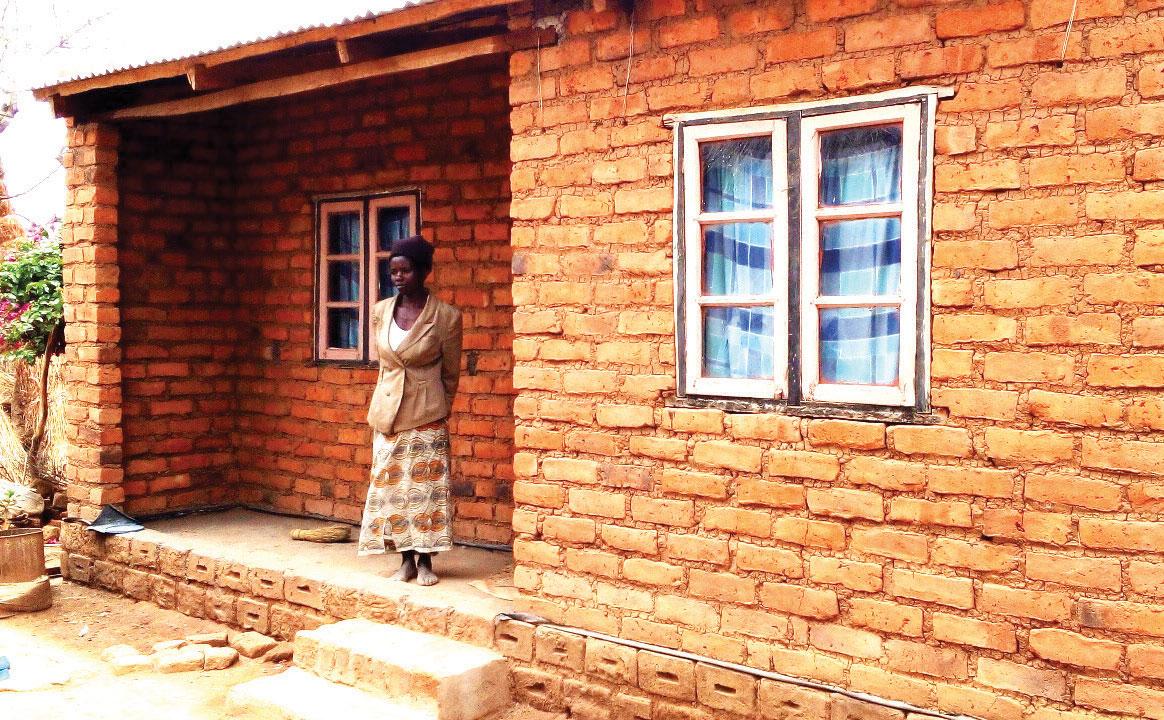Africa-Press – Malawi.
Alice Kandewu, 42, from Chipusire Village in Traditional Authority (T/A) Mpando in Ntcheu District, was thrown into a world of uncertainty when she lost her husband in 2008.
As a village woman and peasant, Kandewu only looked up to her husband for almost everything; so, his loss meant hope had died out for the family.
She had five children, who included a two-week old baby, to take care of all alone.
With limited sources of funds to make ends meet in the Village, Kandewu laid her hands on everything that would bring something to her home.
She used to fetch grass from the bush and covered long distances, with the baby on the back, to sell it.
“Life was tough. The little that I earned was immediately used for feeding my children,” she recalls.
In 2017, luck finally smiled on her when she was earmarked for the Social Cash Transfer (SCT) programme. She was one of the 85 vulnerable people that were put on the programme in her village.
She has since been receiving about K30,000 every month and has used part of the money to build a house.
“Through the money I have been getting, I managed to start a sweet potato business and I also joined a village savings and loans group where I do some savings,” she says.
Miriam Khumata, 42, from Haisa Village in the same area, has a story almost similar to that of Kandewu.
“When my husband died in 2006, everything came to a halt as he left me with young children. But when I started benefitting from the [SCT] programme, I bought a pig and I have been engaging in farming whose proceeds I am using to take care of my children, including paying their school fees,” Khumata states.
Introduced in 2006, SCT, popularly known as ‘Mtukula pa Khomo’, was a Malawi Government initiative of providing upkeeps to ultra-poor and labour-constrained households.
However, not all is well on the ground as beneficiaries continue encountering some challenges to access the funds.
So, Development Communications Trust (DCT) came up with a project to enhance voices of women and children in Ntcheu so that they could demand accountability in the implementation of the programme.
The organisation uses cluster committees, also known as radio listening clubs, which are community advocacy groups, to help in identifying issues and reporting them to DCT for possible action.
DCT Project Officer Thandie Mchiswe says they are pleased that their objective of empowering communities is being achieved.
“We would like communities to demand social accountability in the implementation of the SCT programme. They should know that they are entitled to the money and report to authorities when they notice flaws,” Mchiswe states.
DCT provided the radio listening clubs with phones so that when they are raising awareness, they should also document issues from citizens and take them to responsible duty-bearers.
Citizens are being accorded opportunities of presenting their issues through community dialogues and public hearing fora.
“We have also found out that other controversies are emanating from low literacy levels from beneficiaries where they do not understand other issues. So, through radio listening clubs, we are trying to raise awareness on this,” Mchiswe says.
Principal Social Welfare Officer in the Ministry of Gender Jane Chidengu hailed DCT for moving in swiftly to make the programme more accountable.
“People have been having issues about the programme but they did not know where to take them. So, the coming in of DCT has acted as a bridge between beneficiaries and officials and will result in smooth running of the programme,” Chidengu said.
For More News And Analysis About Malawi Follow Africa-Press






